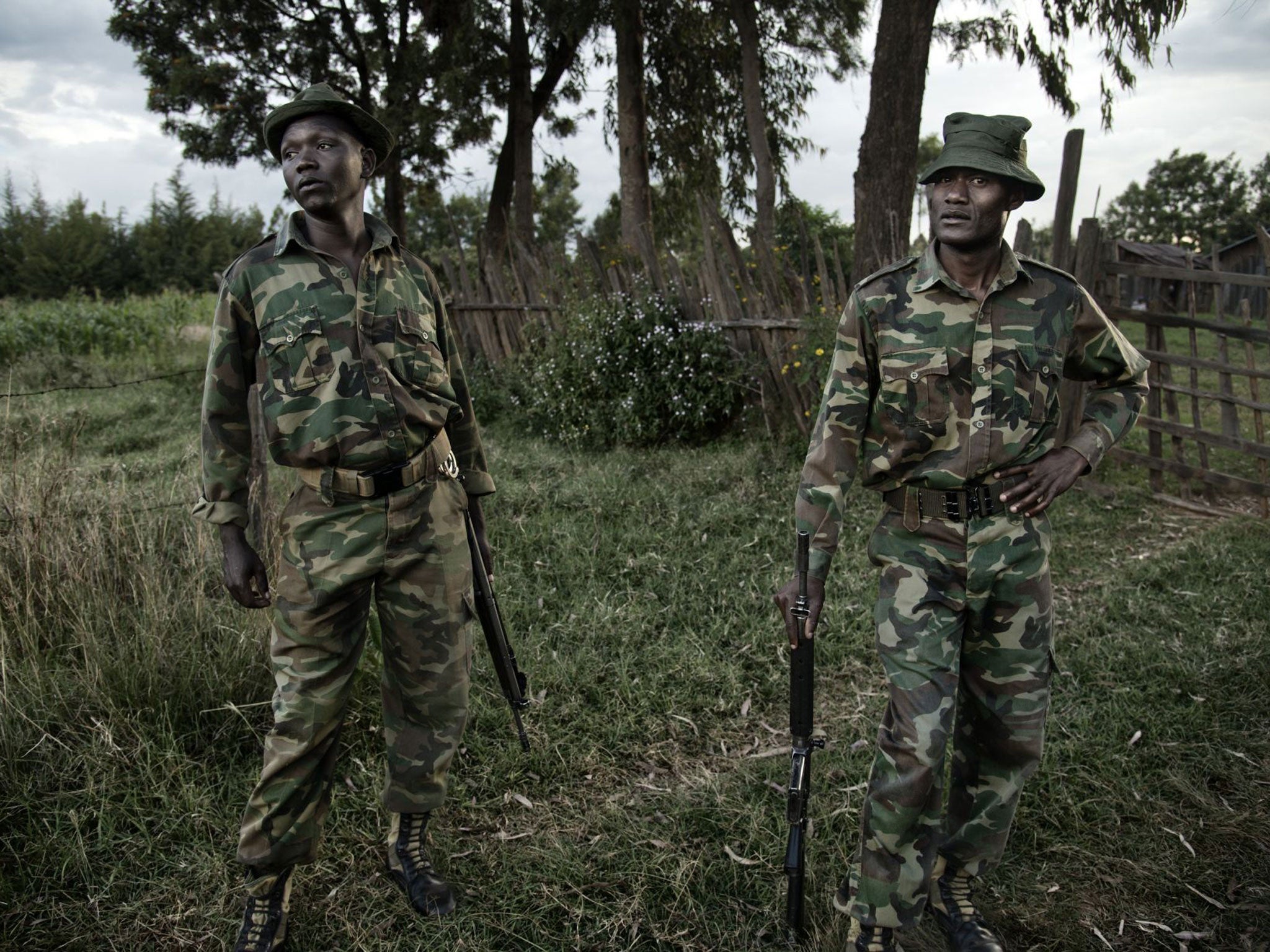The human cost of the demand for ivory
Poachers have killed 1,000 rangers in a decade

Your support helps us to tell the story
From reproductive rights to climate change to Big Tech, The Independent is on the ground when the story is developing. Whether it's investigating the financials of Elon Musk's pro-Trump PAC or producing our latest documentary, 'The A Word', which shines a light on the American women fighting for reproductive rights, we know how important it is to parse out the facts from the messaging.
At such a critical moment in US history, we need reporters on the ground. Your donation allows us to keep sending journalists to speak to both sides of the story.
The Independent is trusted by Americans across the entire political spectrum. And unlike many other quality news outlets, we choose not to lock Americans out of our reporting and analysis with paywalls. We believe quality journalism should be available to everyone, paid for by those who can afford it.
Your support makes all the difference.Every time Lemayan Lelesiit spots an aircraft in the sky, he asks his mother if his dad is nearby. Her answer, she says, breaks her heart each time.
Lemayan, who turns two next month, will never get to meet his father. The former ranger and pilot, Moses Lelesiit, died two years ago when his aircraft came crashing down. He was taking part in an aerial patrol of one of Kenya’s protected conservation areas. He died while trying to defend its elephants and rhinos from the poachers’ guns. He was 41.
Young Lemayan’s story is anything but rare. Scores of families gathered yesterday in Nairobi to commemorate those who had lost their lives in the fight to protect their country’s wildlife. Demand for ivory does not cost just the lives of 100 elephants per day across Africa; across the continent some 1,000 rangers have died in the conflict during the past decade.
In Kenya, they are known simply as “the heroes”. Sixty names adorn a monument in the capital representing all those who have died in the conservation battle since the 1970s. They are mostly men – fathers, sons and brothers – who died while trying to stop poachers from driving Africa’s wildlife to extinction. They almost all left families behind.
Moses’s widow, Habiba, was pregnant with Lemayan when she found out her husband had died. She lost the only breadwinner in her family. She lives in Maralal, a small market town in northern Kenya, and has two other children, aged eight and 13, to support.
“I didn’t believe it when I was told. He was the one who provided everything,” she told The Independent. “Every time my son sees a plane, or a man in uniform, he asks me if his dad is near. Each time, I have to tell him: ‘No, you do not have a father.’ Who could leave a small boy to grow up without a dad? They are very bad.”
She is talking about the poachers who are wreaking havoc across Africa. It is estimated that 20 per cent of Africa’s elephants could be killed in the next decade if poaching continues at the current rate.
Joseph Ole Sayialel, 58, from Narok, a town west of Nairobi, lost his younger brother – a ranger of around 18 years old – when poachers shot him more than two decades ago. He still does not like to say his name out loud. “I had to go to the morgue to identify my own brother,” he said. “He had to be buried there, far from home.”
Back then, Sayialel’s family received only 100,000 Kenyan shillings in compensation, or about £700. Families get more now, but they still say it is not enough. Catherine Kalunde Mutua, 30, lost her father – a ranger – when she was just eight years old. He was shot by bandits while out in the field. “Life was very hard. We were left with our mother, who was not working. We were poor and could only send one brother to secondary school.” Her brother, Arbanus, was given around 67,000 Kenyan shillings, or about £475, in compensation, but the money will never bring loved ones back. “If I had the chance to be a ranger, I would destroy all the poachers,” Arbanus said.
Aggrey Maumo, an assistant director for the mountain conservation area of the Kenya Wildlife Service, knows all about the danger waiting for rangers on the ground. Maumo was with a ranger earlier this year as poachers shot him down. He was 29. “It was very bad. He was shot when I was there. He was the breadwinner of the family.”
He added that he had lost about 70 elephants in his area this year – around 90 per cent as a result of poaching. “We must engage the international community. We must tell them it’s dangerous – that people are losing their lives.”
As for those on the front line, he is adamant they are not forgotten. “We must remember these fallen heroes – they died in the line of duty.”
Join our commenting forum
Join thought-provoking conversations, follow other Independent readers and see their replies
Comments